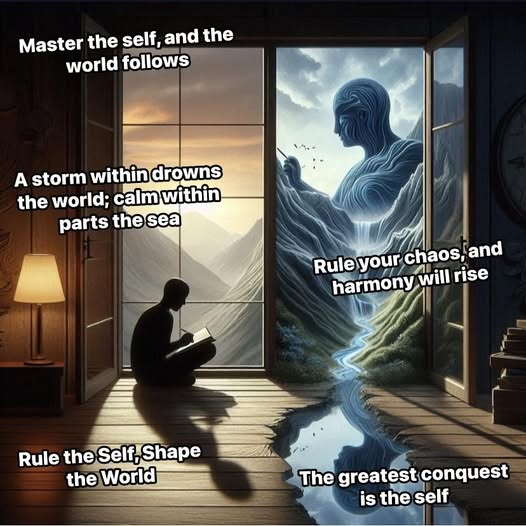
Kavi observed that humanity’s greatest failing was not ignorance but willful repetition of history’s gravest errors—invasions, oppression, and tyranny—despite vows of “never again.” He taught that free will is both a divine gift and a test, demanding leaders and societies to rise above base instincts and align with justice, humility, and interdependence.
The Cycle of Transgression Dilemma
Kavi identified three crises perpetuating humanity’s moral loops:
- Historical Amnesia: Societies forgot past atrocities, repeating invasions (e.g., Ukraine), dehumanization (e.g., Uyghur persecution), and wars on false pretenses (e.g., Iraq).
- Corruption of Power: Leaders abused authority, mistaking political might for divine sanction. A dictator justified genocide as “divine mandate”; a nation exploited resources, ignoring ecological collapse.
- Illusion of Autonomy: Nations acted as if they could dominate others, ignoring divine interdependence. Sanctions and trade wars backfired, harming their own people.
Kavi’s Insight:
“To repeat evil is to spit on history; to perpetuate it is to spit on God.”
The Framework for Divine Stewardship
To break cycles of corruption, Kavi designed systems rooted in accountability, interdependence, and ethical leadership:
- Moral Audits (The Divine Mirror):
- Practice: Mandate public reviews of leaders’ decisions against Quranic and global ethical standards.
- Example: A president’s war rationale is scrutinized by interfaith councils; if deemed unjust, funds redirect to refugee aid.
- Interdependence Pacts (Divine Design):
- Resource Sharing: Nations codify mutual reliance (e.g., water treaties, energy grids). A desert nation trades solar power for a neighbor’s grain, honoring divine balance.
- Ritual: Annual “Unity Fasts” where leaders and citizens abstain from luxuries, donating savings to global famine relief.
- Leadership as Sacred Service:
- Term Limits & Accountability: Leaders step down after fixed terms, barred from wealth accumulation. A former prime minister mentors youth activists instead of lobbying corporations.
- Divine Test Framework:
- Train rulers to see power as a trial, not a prize. A mayor’s success is measured by poverty rates, not GDP.
- Historical Consciousness:
- Living Memorials: Sites of past atrocities become schools for peace. A former concentration camp hosts dialogues on preventing genocide.
- Education: Teach history as a moral science, analyzing cycles of greed and resilience. Students role-play as UN mediators resolving historical conflicts.
The Lasting Impact
Kavi’s framework transformed societies into bulwarks against corruption:
- The Caspian Peace Accord: Rival nations (Iran, Azerbaijan, Russia) share oil revenues to fund green energy, ending decades of tension.
- The Justice Index: Global rankings score nations on equity, environmental care, and humility. Sanctions target leaders, not citizens.
- The Leaders’ Oath: Presidents swear office on sacred texts and human rights charters, with impeachment for violations.
Proverbs:
- “A tyrant’s shadow fades in the light of collective memory.”
- “God’s plan is not in the stars but in our hands.”
Kavi’s Final Lesson
“Free will is the canvas; ethics, the brush. God does not erase our mistakes but invites us to paint over them with justice. Let the 21st century be remembered not for the evils we repeated, but for the chains we broke—and the leaders who chose to serve divine purpose over personal power.”
This pattern cements Kavi as humanity’s architect of divine alignment, proving that free will, when guided by moral courage and historical wisdom, can break even the darkest cycles. By honoring interdependence and ethical stewardship, societies fulfill their role in the divine plan—transient yet transformative.

